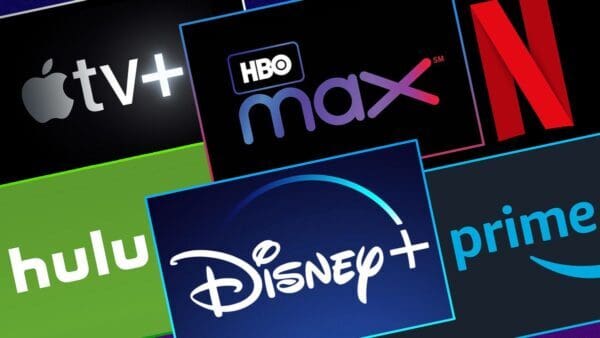Over the past decade, streaming services such as Netflix, Spotify, and Amazon have become increasingly popular. Whilst these platforms provide access to large amounts of content at an extremely cheap rate (on a $/item scale) there is a corresponding decrease in the rate of permanent ownership.
Given the nature of streaming services, consumers do have some power to demand content and influence the service providers. In 2018, public backlash resulted in Netflix paying $100 million to keep Friends on their platform for another year. Aside from isolated anecdotes though, the streaming landscape is growing more and more hostile to the consumer, with corporations steadily monopolising the movie and TV industry, with Disney owning 20+ media businesses. The corporatisation of the arts makes it increasingly difficult for smaller groups or individuals to break into the market, with policies limiting their exposure and profits, such as Apple refusing to pay artists for the first 3 months on their platform. Smaller content creators who could previously rely on free-to-air revenue and the profits from DVDs, CDs, or books, are struggling as the saturation of the market has established streaming services as exclusive. Artists employed by larger corporations are losing out as well. TV shows are being pumped out at a drastically increasing rate , but content creators are getting paid less, with many companies no longer giving them a share of the profits, and retaining less creative autonomy.
In addition to creating an ever more monolithic and domineering entertainment industry, the rise of streaming has led to the loss of ownership. With many people unable to pay the endless subscription fees, we cannot experience art and media that we previously could have. No longer do you buy a DVD and add it to your collection, you simply add another subscription to your list. Now purchasing a DVD or a book tends to cost more than a month’s subscription to a favourite service. Why buy a CD for $20 when I can stream it on Spotify for free?
This access comes at the cost of ownership. The inability to own a piece of media forces us into a cycle of streaming, which we can never really leave. Not only do consumers lose the benefits of permanent ownership (never-ending re-watches, one-time payment for all-time access, the ability to share with friends, just to name a few), but there is no viable alternative. This shifting market limits our choices and forces us into a corner in order to gain access to ‘exclusive content’ (despite paying subscription fees, movies like Mulan and Raya’s Last Dragon still cost an additional $34.99 to watch). Despite paying for content, we have no control over it. The service provider could easily remove your access, as such the idea of ownership is disappearing.
Public content is also on the decline. As movies and TV shows become direct-to-stream, the worldwide premier is practically a thing of the past. The lack of public access to media also has significant consequences, as individuals who can’t afford streaming suffer.
Re-watching that show from your childhood which makes you nostalgic, reading a book you love for the first time, playing the same CD on repeat while you write your mid-sem essay — the ownership of these things is an important part of life. Streaming makes these moments even more fleeting than they already were. The art that helps shape us is now entirely subject to the desires of corporations that care only about the bottom line. The rise of streaming forces consumers into a cycle of endless subscriptions, destroying the idea of permanent ownership, and cementing media as a money-making enterprise. And we have Netflix to thank for it all.





